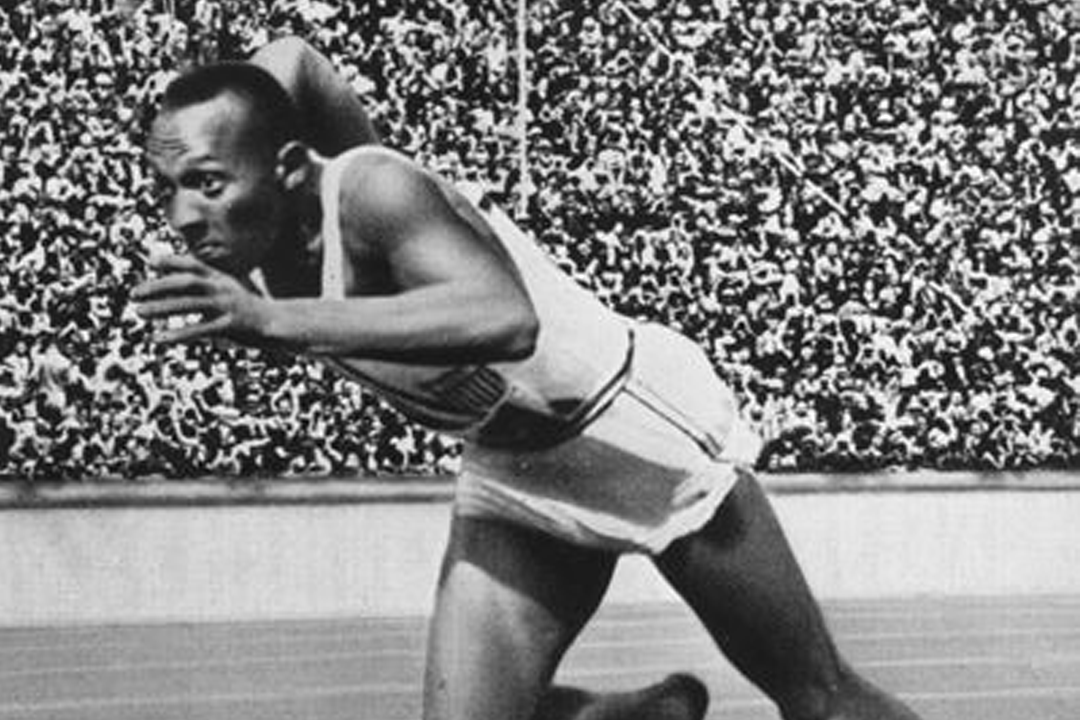Exactly 87 years ago today, Alabama native and legendary track and field athlete Jesse Owens began his crusade to win four gold medals in Adolf Hitler's Germany during the Summer Olympics.
Owens was born in Oakville in 1913. He was the youngest of 10 children, and his parents were sharecroppers. However, he and his family moved to Cleveland, Ohio, when he was nine, along with over 1 million other black families who migrated north during the first half of the 20th century.
Owens' real name is James Cleveland, or J.C., Owens. He only acquired the nickname "Jesse" when his teacher mistook him for saying "Jesse" when he told her his name was "J.C." in his southern accent.
As a teenager, Owens held odd jobs after school while training before school. His junior high track coach, Charles Riley, encouraged him to put in the work and get better.
By the time he finished high school, Owens already equaled the world record in the 100-yard dash of 9.4 seconds. After graduation, he attended Ohio State University and became known as the "Buckeye Bullet." There, he won eight NCAA championships.
Nevertheless, Owens was never awarded a scholarship and worked part-time to pay for his tuition while training for track and attending class.
On May 25, 1935, Owens established three world records during the Big Ten meet in Ann Arbor, Michigan: the long jump, the 220-yard sprint and the 220-yard low hurdles. He again equaled the world record for the 100-yard dash.
The following year, Owens and his U.S. teammates left for Germany to compete in the Summer Olympics.
The Third Reich had risen to power in Germany after the Nazi Party became the largest party in parliament after the 1932 election. President Paul von Hindenburg appointed Hitler as chancellor in 1933. Later that year, the Enabling Act of 1933 gave Hitler the power to create laws without parliament, thus beginning the dictatorship that would eventually lead the Germans into the Second World War.
On August 3, 1936, Owens defeated fellow American Ralph Metcalfe and the Netherlands' Tinus Osendarp by two-tenths of a second to win the 100-meter dash. The next day, he won the long jump, leaping 8.06 meters, equivalent to a little over 26 feet. He won the 200-meter spring on August 5 and the 100-meter relay on August 9.
Though the International Olympic Committee asked that Hitler greet all the medalists, Hitler did not attend any of the medal presentations and only shook hands with German winners.
Nevertheless, Owens recounted his experience of Hitler in the Pittsburg Press and refused to criticize the dictator because he thought it would have been "poor sportsmanship" to do so in his own country.
"Hitler had a certain time to come to the stadium and a certain time to leave," he said. "It happened he had to leave before the victory ceremony after the 100 meters. But before he left, I was on my way to a broadcast and passed near his box. He waved at me, and I waved back. I think it was bad taste to criticize the 'man of the hour' in another country."
But Hitler was not the only leader to pass on the opportunity to meet Owens. When Owens returned home, President Franklin D. Roosevelt never invited him to the White House.
Regardless, Roosevelt's fellow Democrats solicited him for his support in that year's presidential race, but Owens refused and supported Republican Alf Landon instead.
For the remainder of his life, Owens struggled financially and was even prosecuted for tax evasion before he worked as a goodwill ambassador for President Dwight Eisenhower and retired in 1972. He died of lung cancer in Tuscon, Arizona, on March 31, 1980.
To connect with the author of this story or to comment, email will.blakely@1819news.com or find him on Twitter and Facebook.
Don't miss out! Subscribe to our newsletter and get our top stories every weekday morning.










